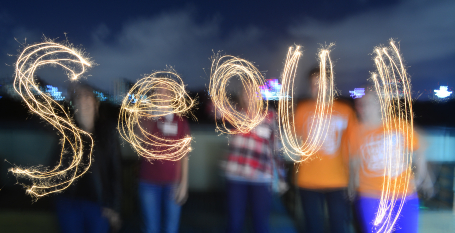A senior government official under South Korea’s new president has publicly apologised after massive backlash for comparing homosexuality to mental illness.
Kim Seong-hoi, the newly-appointed religion and multicultural secretary under president Yoon Suk-yeol, was called out for a Facebook post from 2019 in which he said homosexuality was a “sort of mental illness”, the Korea Herald reported.
He added that he didn’t endorse being part of the LGBTQ+ community and was summarily banned from Facebook due to the social media platform’s hate speech regulations.
Kim said in a statement on social media that he “sincerely” apologised for some of his problematic comments in the past. This included statements he made about the LGBTQ+ community and victims of sexual slavery during the Japanese occupation of South Korea.
But his apology caused further outrage after he claimed that being queer could be “treated” and appeared to encourage the widely debunked, pseudoscientific practice of LGBTQ+ conversion therapy.
“I respect the diversity in sexual orientation that individuals have, but I am personally against homosexuality,” he said. “And while there are those with innate homosexual tendencies, I think in many cases people mistakenly think of it as basic instinct, even though they acquired it as a habit.”
Kim wrote that he believed being gay could be “treated” like “how a smoker can receive treatments for cigarette addiction”.
LGBTQ+ activists have called for Kim’s resignation for his vile remarks and called on the new president to also apologise for his government official’s statement.
Campaign group Rainbow Action said in a statement about Kim’s anti-LGBTQ+ remarks that conversion therapy is “unscientific and goes against international human rights”, AFP reported.
“As a person who declared his duty to comply with the constitution, how will Yoon take responsibility for the situation in which sexual minorities are insulted within the first two days of his term?” the campaign group said.
Rainbow Action also asked the Yoon to take action and protect LGBTQ+ people from such hate in South Korea in the future.
However, it’s unlikely that the conservative president, who was sworn in on Tuesday (10 May), will listen to their pleas. Yoon is an avowed “anti-feminist” and proudly promised on his campaign trail to abolish South Korea’s ministry of gender equality.
He has blamed the country’s low birth rates on feminism and said he doesn’t think “structural discrimination based on gender” exists in South Korea.
While homosexuality is no longer criminalised in the country, South Korea has been slow to adopt broader protections for queer people. There are slim to no legal protections for LGBTQ+ people from discrimination, and the Asian country does not recognise same-sex relationships.
South Korea also has no ban on conversion therapy in the country.
Several recent news stories have also laid bare the treatment of LGBTQ+ people in South Korea. The death of South Korea’s first trans soldier last year and the legal battles of queer soldiers have detailed the horrific treatment of LGBTQ+ service members in the country.
Openly gay K-pop star Holland recently revealed on social media that he was left bloodied after a “homophobic” attack while out in Seoul with his manager and a friend.
Holland, who is known as the first openly gay K-pop musician, told fans that a stranger struck him in the face and called him a “dirty gay”. He declared the attack was “obviously a hate crime” and said that his sexuality should “never expose myself to this kind of violence”.
“This happening in 2022 shows the sad reality of LGBT+ human rights,” he added.
A senior government official in South Korea has publicly apologised after receiving backlash for post social media posts in which he compared homosexuality to mental illness.
According to local media reports, Kim Seong-hoi, the newly-appointed religion and multicultural secretary, was called out for a Facebook post from 2019 in which he said homosexuality was a “sort of mental illness”.
He added that he didn’t endorse being part of the LGBTQ+ community and was summarily banned from Facebook due to the social media platform’s hate speech regulations.
Kim said in a statement on social media that he “sincerely” apologised for some of his problematic comments in the past. This included statements he made about the LGBTQ+ community and victims of sexual slavery during the Japanese occupation of South Korea.
But his apology caused further outrage after he claimed that being queer could be “treated” and appeared to encourage the widely debunked, pseudoscientific practice of LGBTQ+ conversion therapy.
“I respect the diversity in sexual orientation that individuals have, but I am personally against homosexuality,” he said. “And while there are those with innate homosexual tendencies, I think in many cases people mistakenly think of it as basic instinct, even though they acquired it as a habit.”
Kim wrote that he believed being gay could be “treated” like “how a smoker can receive treatments for cigarette addiction”.
LGBTQ+ activists have called for Kim’s resignation for his remarks and called on South Korea's president to also apologise for his government official’s statement.
What’s life like for LGBTQ people in South Korea?
What’s life like for LGBTQ people in South Korea? Let’s take a look at some of the key equality indicators.
Is homosexuality legal in South Korea?
Yes. While same-sex encounters have never technically been illegal in South Korea, 2003 was a big step forward when homosexuality was officially declassified as “harmful and obscene”.
Are there anti-discrimination protections in place for LGBTQ people in South Korea?
While there are some protections in place at a local government level, national anti-discrimination legislation does not protect people from discrimination on the basis of sexuality or gender identity.
Is there marriage equality?
There is no legal recognition of same-sex relationships and no marriage equality.
What’s life like for LGBTQ people in South Korea?
South Korea is a socially conservative country. There remains a strong expectation that people conform to the norms of family and society.
Homosexuality is seen as a taboo subject.












 打印版本
打印版本




















读者回应
请先登入再使用此功能。